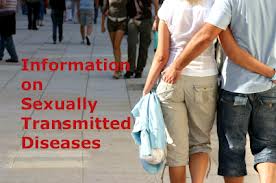The Halton Region Health Department is launching the first phase of Sex Healthy Halton; a social media campaign to promote safer sex, healthy relationships, raise awareness, and reduce sexually transmitted infections. There is aFacebook page
“The landscape for today’s youth is constantly changing and evolving and we need to ensure the youth are able to get trustworthy, reliable and accurate information and services,” stated Gary Carr, Halton Region Chair. “The Health Department’s approach to service and education is reflecting these changes.”

Infections transmitted sexually are not just an uninformed teen problem – it`s n adult problem as well.
The Facebook page is the first phase. A YouTube channel with videos of Public Health Nurses answering frequently asked questions and discussing current and local topics will be launched later this fall.
In Halton, Chlamydia rates increased 173 per cent between 2001 and 2010. In 2011, a total of 833 Chlamydia cases were reported compared to 454 cases in 2007. Social media and networking sites are quickly gaining popularity as a medium.
And that is all the Region tells you. We researched a bit and have added this:
What is chlamydia?
Chlamydia is a common sexually transmitted disease (STD) caused by a bacterium. Chlamydia can infect both men and women and can cause serious, permanent damage to a woman’s reproductive organs.
How common is chlamydia?
Chlamydia is the most frequently reported bacterial sexually transmitted infection in the United States. In 2011, 1,412,791 cases of chlamydia were reported to CDC from 50 states and the District of Columbia, but an estimated 2.8 million infections occur annually. A large number of cases are not reported because most people with chlamydia do not have symptoms and do not seek testing. Chlamydia is most common among young people. It is estimated that 1 in 15 sexually active females aged 14-19 years has chlamydia.
There is a lot more information the Region could have provided – are we sensing some timidity here?
“There are a lot of false information, myths and misconceptions about sexual health and sexuality,” stated Dr. Bob Nosal, Halton Region Medical Officer of Health. “We hope to provide a safe and trusted environment for youth to ask questions and seek answers. Social media will never replace one-to-one services or counseling, but this will open the door for discussions and education.”
Youth will be able to ask questions (publicly or privately), search for answers, connect with a Public Health Nurse, and find information about clinic locations, times and services.
You can follow-up on this: Dial 311 or call 1-866-442-5866.
There were just 13 likes on the Facebook this morning – we will track this and see if it is serving a useful purpose or if it is just one of those mickey mouse, tepid efforts that bureaucrats who don’t want to embarrass anyone tend to do.
A mistake made as a teenager alters a life forever and usually not just the life of the teen. Kids get it – we just need to inform them. This just might be one of the good ideas.




















I hope that guy’s not with my daughter….he has dirty feet!!